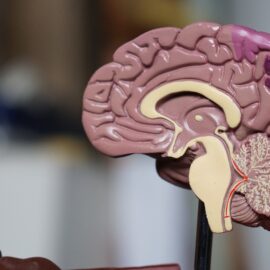

This article is an excerpt from the Shortform book guide to "Life Force" by Tony Robbins, Peter H. Diamandis, and Robert Hariri. Shortform has the world's best summaries and analyses of books you should be reading.
Like this article? Sign up for a free trial here.
How much exercise is too much? What are the consequences of exercising too much? How can you ensure you’re getting the optimal level of exercise for your needs?
It’s no secret that regular exercise is important for good health. However, there is also such a thing as too much exercise, which can seriously damage your health by causing injury or leading to burnout.
Here are some tips to ensure you’re getting the right amount of exercise for good health.
The Importance of Exercise
In their book Life Force, Robbins, Diamandis, and Hariri recommend moderate to vigorous exercise for good health and vitality. They explain that sedentary lifestyles—those that involve sitting for six or more hours per day with little to no exercise—put you at much higher risk for many different causes of premature death. Exercising regularly can reduce the risk of heart disease, kidney disease, diabetes, dementia, and various types of cancer. The authors recommend making simple lifestyle changes that provide you with your personal optimal level of activity.
| Sedentary Lifestyles at Work and in Schools The prevalence of sedentary lifestyles is increasing globally. Research shows that around one-third of the world’s adult population gets insufficient exercise and that factors like a lack of access to exercise spaces and an increase in sedentary work like office jobs continue to limit people’s physical activity. Additionally, children are being given fewer opportunities for exercise at school than they had in the past several decades. Daily physical education classes used to be standard in most American schools, but recently the public education system’s push for academic achievement and budget cuts has led to a drop in such classes. Currently, less than 10% of American schools have daily PE, and nearly a quarter have no PE at all. This societal increase in sedentary behavior makes it all the more important to implement your own lifestyle changes that give you the right level of regular exercise. |
For example, simple changes such as walking for two and a half hours a week can drastically reduce your risk of dying from a stroke or heart attack. These benefits increase if you choose a harder activity such as jogging, which can reduce your biological age by nearly a decade. (Your biological age is how old your body appears to be based on the condition of your cells and tissues—as opposed to chronological age, which is how many years you’ve been alive.)
(Shortform note: Research shows that you can get the benefits of exercise even from activities like housework and yard work. These activities can build muscle, flexibility, and cardiovascular strength just like regular exercise, with the added benefit of a clean house or a beautiful lawn.)
The authors also counsel you to build muscle mass, which improves your metabolism and decreases the risk of falling as you age. They recommend static contraction exercises, which involve holding the maximum weight you can hold in a still position for several seconds. They also point out that rest is vital to building muscle, and that it’s necessary to give your muscles a few days of rest after exercising them intensely in order to get stronger.
(Shortform note: Muscle mass can be extremely beneficial in old age. Healthy diet and exercise throughout life can slow the emergence of sarcopenia, or reduction in muscle mass due to aging. Taking these steps can drastically reduce the risk of falls and the likelihood of breaking a bone from a fall, which is significant given that falling is the number one cause of injury in older Americans.)

———End of Preview———
Like what you just read? Read the rest of the world's best book summary and analysis of Tony Robbins, Peter H. Diamandis, and Robert Hariri's "Life Force" at Shortform.
Here's what you'll find in our full Life Force summary:
- How new technology may dramatically expand the human lifespan
- Lifestyle changes you can make now to increase your lifespan
- Whether or not it's possible for humans to become immortal






